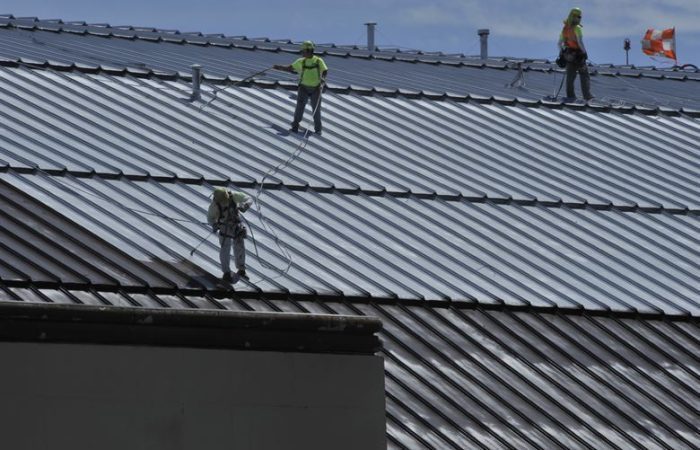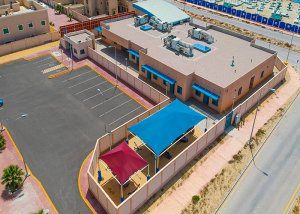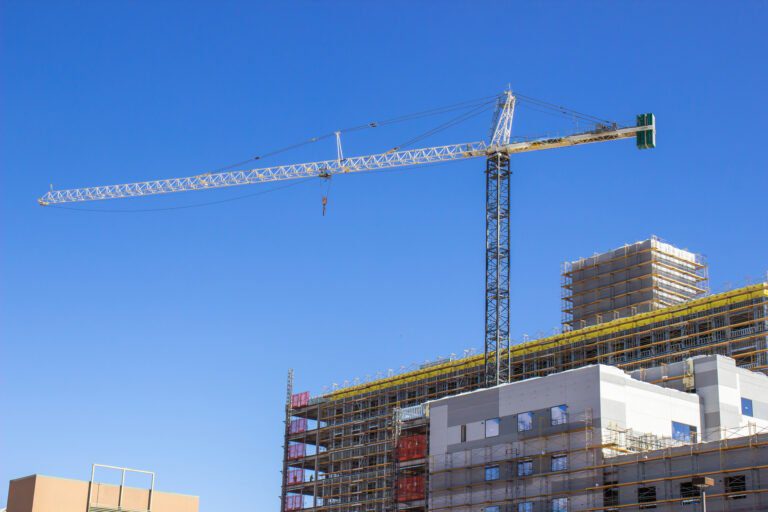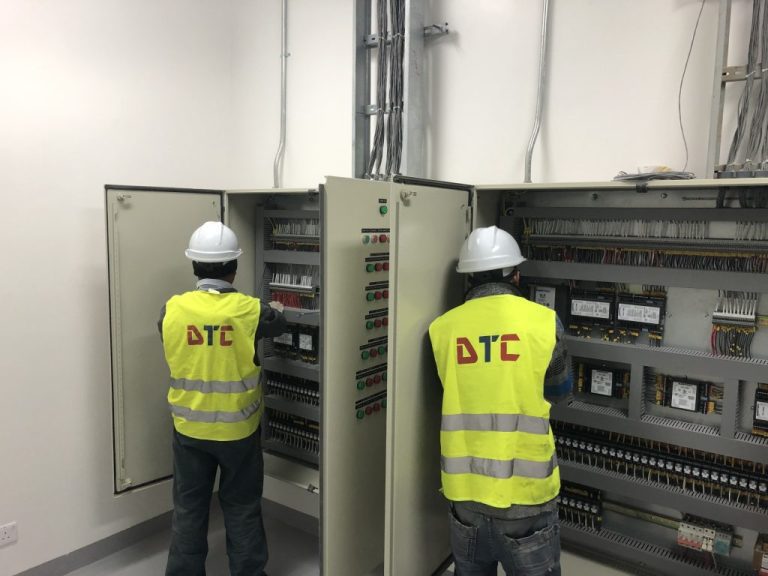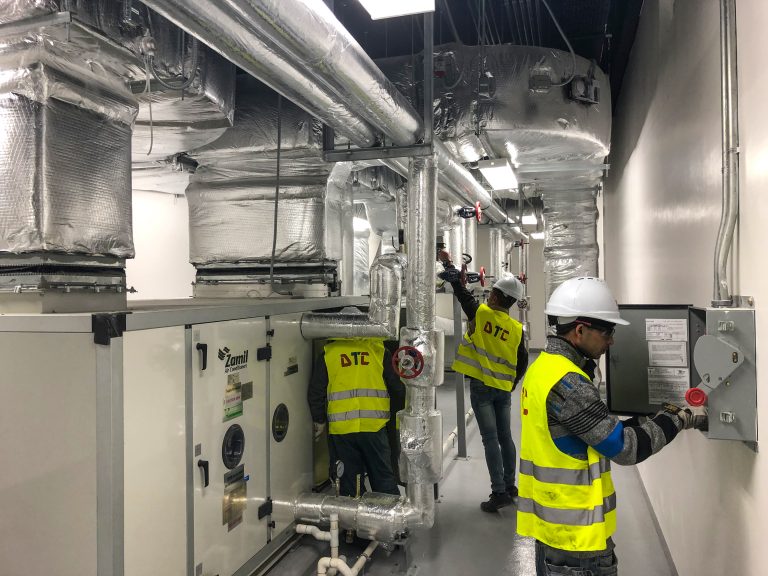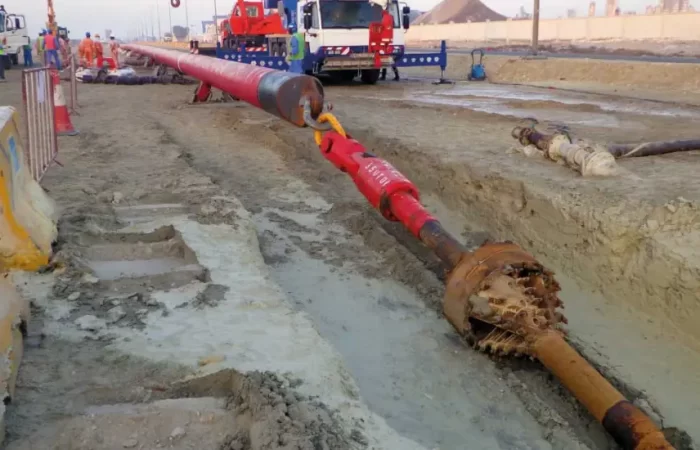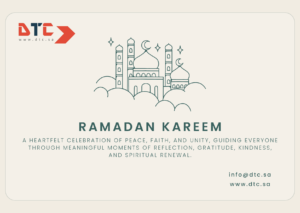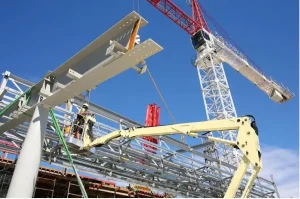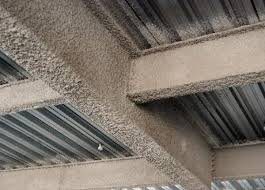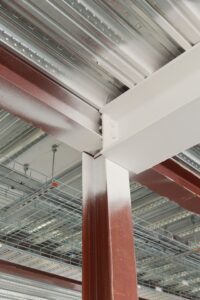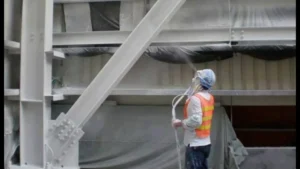When it comes to roofing for warehouses in Saudi Arabia, choosing the right material is critical. With extreme weather conditions ranging from scorching heat to heavy rains, you need a roof that’s durable, energy-efficient, and low maintenance. Here’s a breakdown of different roofing systems available for industrial warehouses in Saudi Arabia, highlighting their benefits, costs, and suitability.
Introduction to Warehouse Roofing in Saudi Arabia
Warehouses in Saudi Arabia face some of the harshest environmental challenges, from high temperatures to occasional storms. The roof of your warehouse plays a crucial role in protecting your inventory, minimizing energy costs, and ensuring the longevity of your building.
In Saudi Arabia, warehouse roofs must be designed to handle these extremes, keeping interiors cool, and even supporting additional equipment like HVAC systems or solar panels. With so many options available, choosing the right roofing system can greatly affect your operational costs and building efficiency.
Factors to Consider When Choosing a Warehouse Roofing Type
Before you settle on a roofing type, several factors need to be considered:
- Durability: The roof must be able to withstand the intense heat and occasional rainstorms typical of Saudi weather.
- Energy Efficiency: A well-insulated and reflective roof can reduce cooling costs significantly.
- Load Capacity: Your roof may need to support equipment such as air conditioners, solar panels, or water tanks.
- Maintenance: Choose a roofing material that minimizes long-term maintenance while ensuring durability.
- Budget: While initial costs may vary, long-term cost-effectiveness is key when deciding between roofing systems.
Built-up Roofing Systems (BUR)
Built-up roofing systems (BUR) are made from alternating layers of bitumen and reinforcing fabrics. Commonly used in industrial settings, these roofs offer excellent durability and protection.
Benefits of BUR for Warehouses
- Extreme Weather Resistance: Built-up roofing can withstand high temperatures and severe rainstorms.
- Fire Resistance: It provides a higher fire safety rating compared to some other roofing options.
- Long Lifespan: BUR systems can last up to 30 years with proper maintenance.
However, BUR systems can be heavy and may require a skilled team for installation, increasing labor costs.
Single-Ply Roofing Systems
Single-ply roofing systems are a lightweight option that uses a single membrane made of synthetic materials like thermoplastic polyolefin (TPO) or polyvinyl chloride (PVC). This roofing type is popular due to its affordability and ease of installation.
Why Consider Single-Ply Roofing?
- UV Resistance: Single-ply roofs are highly resistant to ultraviolet radiation, which is essential in sunny climates like Saudi Arabia.
- Cost-Effective: It’s cheaper to install than more complex systems.
- Puncture-Resistant: Despite being lightweight, it’s durable enough to resist punctures from debris or equipment.
However, it may require regular inspections to ensure longevity, especially in the extreme climate.
Metal Roofing Systems
Metal roofing systems are favored for their exceptional durability and strength. Steel, aluminum, and copper are some materials used in warehouse roofing across the Kingdom.
Benefits of Metal Roofing for Warehouses
- Durability: Metal roofs can last 50 years or more, making them a worthwhile investment.
- Energy Efficiency: Metal reflects sunlight, helping to keep warehouses cooler, which can drastically lower cooling costs.
- Fire Resistant: It offers excellent protection against fire hazards.
However, metal roofs can be noisy during rainstorms, and the initial installation cost is higher compared to single-ply or BUR systems. Regular maintenance is also needed to prevent rusting.
Concrete Roofing Systems
Concrete roofs offer a highly durable solution, ideal for industrial settings like warehouses. This type of roofing is particularly suitable for heavy-duty applications.
Advantages of Concrete Roofing Systems
- Strength: Concrete roofs can support heavy equipment, making them ideal for industries requiring large HVAC units or solar panels.
- Fire and Impact Resistance: Concrete is naturally fire-resistant and can withstand harsh weather conditions.
- Low Maintenance: Concrete roofs require minimal maintenance over their long lifespan.
The downside to concrete roofing is the higher upfront cost and the fact that it may require additional insulation to combat the intense heat of the Saudi summer.
Solar Panel Roofing Systems
For those looking to improve sustainability, solar panel roofing systems are an excellent choice in Saudi Arabia, where the sun shines abundantly throughout the year.
Why Solar Panels on Warehouses?
- Energy Savings: Solar panels reduce energy costs by generating power directly from sunlight.
- Sustainability: They are environmentally friendly and can help warehouses comply with green building standards.
- Government Incentives: In Saudi Arabia, there are incentives for businesses adopting renewable energy sources.
However, installing solar panels can require significant investment upfront and careful planning to ensure the warehouse structure can support their weight.
Green Roofing Systems
A growing trend in industrial buildings, green roofing systems involve planting vegetation on the roof. While more common in urban environments, they are being considered in industrial spaces too.
Why Consider Green Roofing?
- Natural Insulation: Green roofs help regulate indoor temperature, reducing reliance on HVAC systems.
- Environmental Impact: They can absorb rainwater, provide insulation, and reduce the urban heat island effect.
- Aesthetic Appeal: While primarily functional, green roofs also offer aesthetic value.
Green roofs require more maintenance compared to traditional roofs and are more expensive to install due to the structural support needed.
Maintenance and Repair of Warehouse Roofs
Regular roof maintenance is critical to ensuring the long life of your roofing system. Whether it’s inspecting for leaks, cleaning drains, or repairing minor damage, routine checks can prevent larger issues down the line.
Choosing the Right Contractor
Selecting the right contractor for your warehouse roofing project is crucial. Look for contractors with experience in your chosen material, excellent client reviews, and a portfolio of successful projects. Local expertise is also key, as contractors familiar with Saudi Arabia’s weather conditions will know how to choose the best solutions for your needs.
Cost Analysis of Different Roofing Systems
Cost is always a factor, and it’s important to weigh the upfront installation costs against long-term savings. While concrete and metal systems have higher upfront costs, their longevity and low maintenance may save money over time. On the other hand, single-ply systems are cheaper to install but may require more frequent maintenance.
Energy Efficiency in Warehouse Roofing
Energy-efficient roofs are a smart investment, particularly in Saudi Arabia. Roofs that reflect heat, like metal or white single-ply systems, can significantly reduce cooling costs, making them highly cost-effective over the long term.
Safety Considerations in Warehouse Roofing
Safety is paramount in roofing projects. Ensure that your contractors follow best practices for workplace safety, including proper harnessing and safety gear, especially during installation in extreme weather.
Future Trends in Warehouse Roofing
The future of roofing in Saudi Arabia points to increased sustainability and energy efficiency. Solar and green roofs are expected to become more common as businesses aim to lower operational costs and reduce their carbon footprint.
Conclusion
Choosing the right roofing solution for your warehouse in Saudi Arabia involves considering factors like climate, cost, durability, and energy efficiency. With the right material and a skilled contractor, you can ensure that your warehouse roof provides protection, supports additional equipment, and lowers operational costs, ultimately contributing to a more efficient and sustainable business operation.

